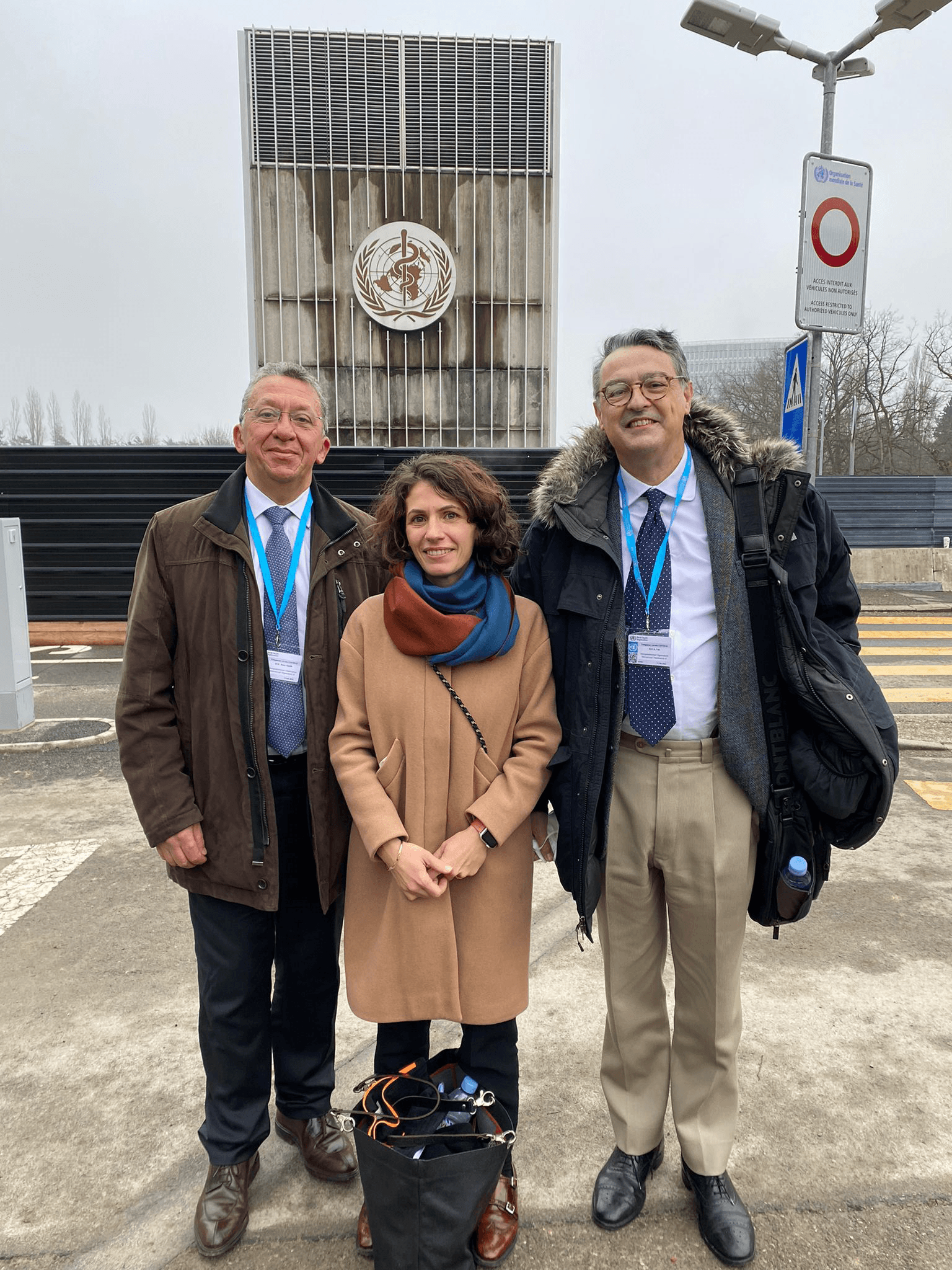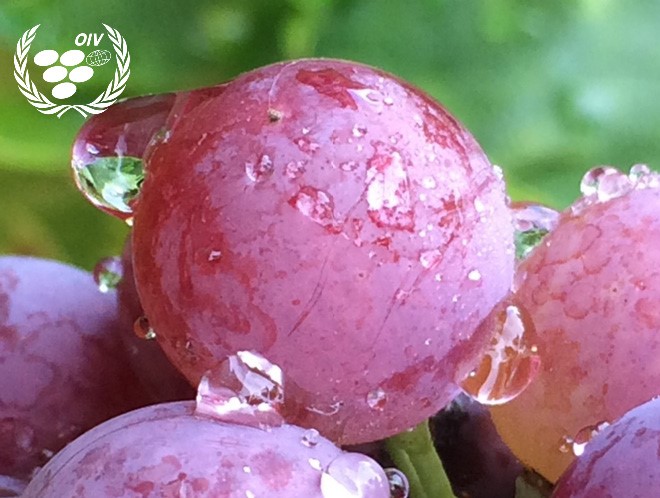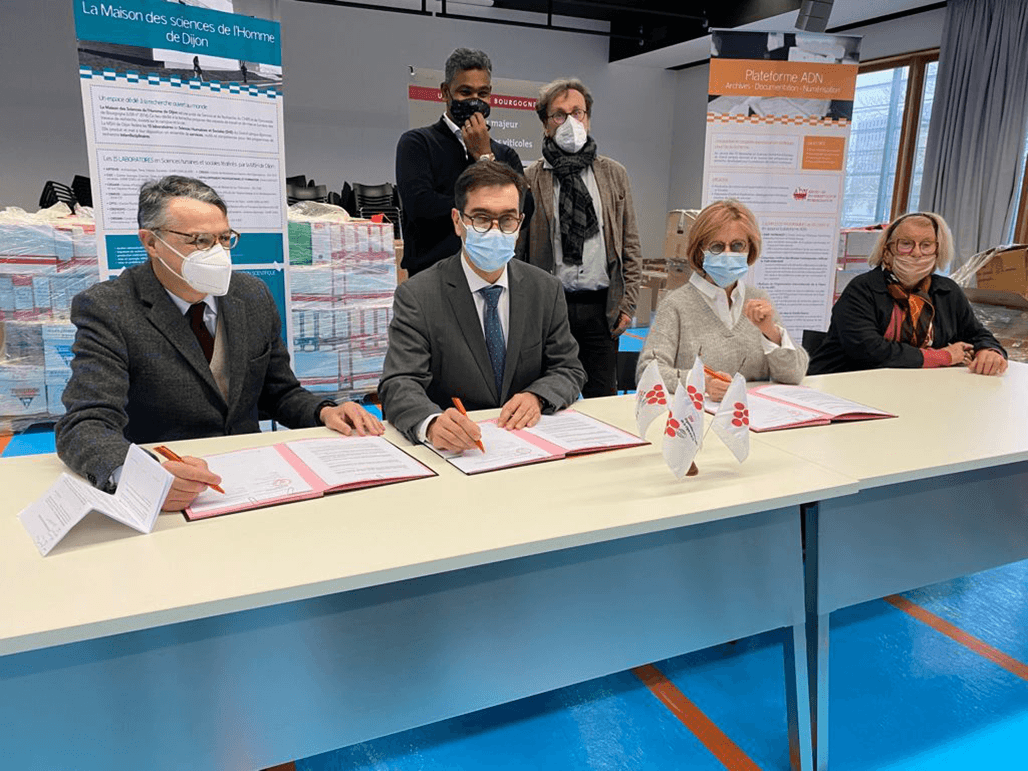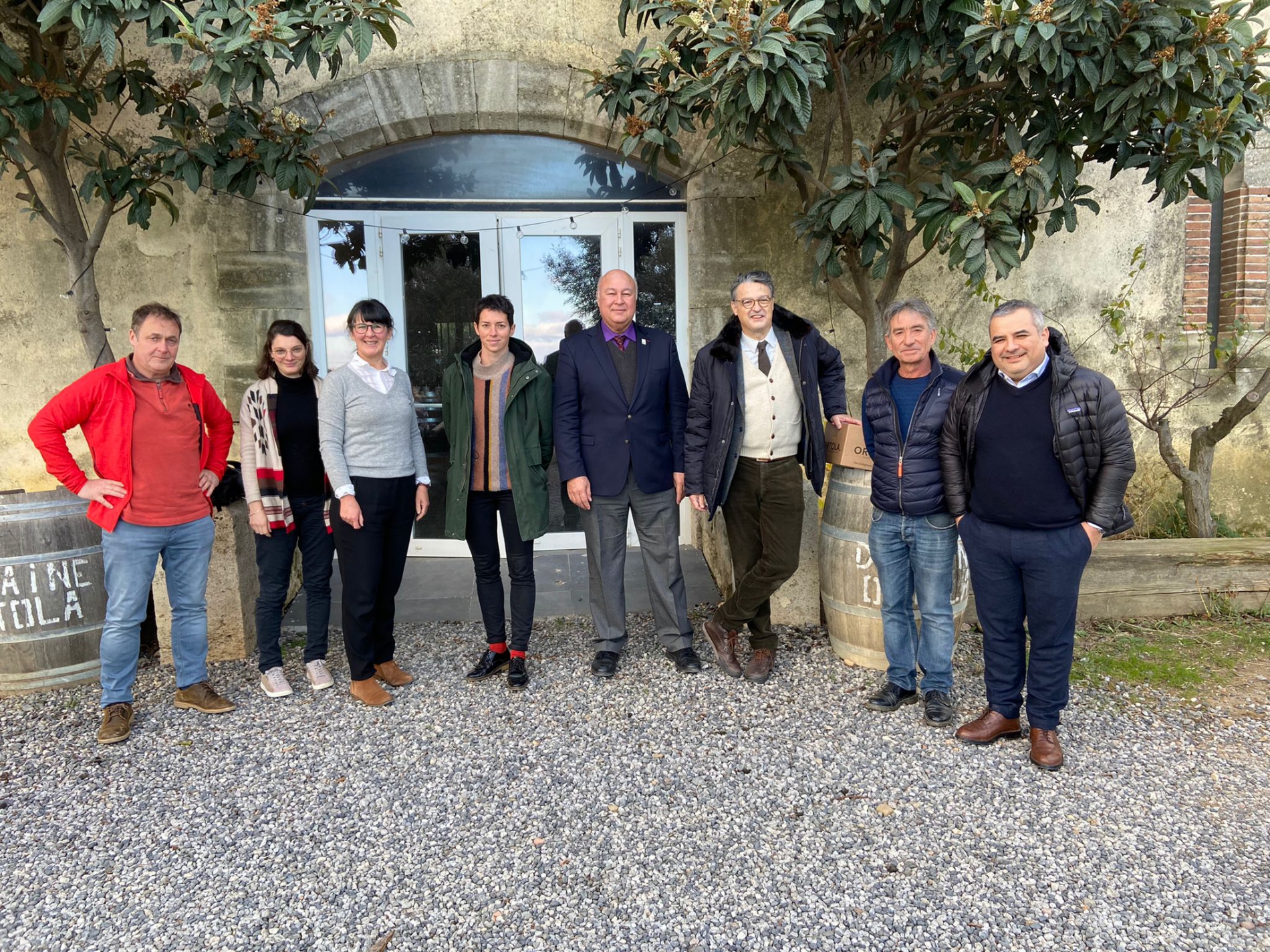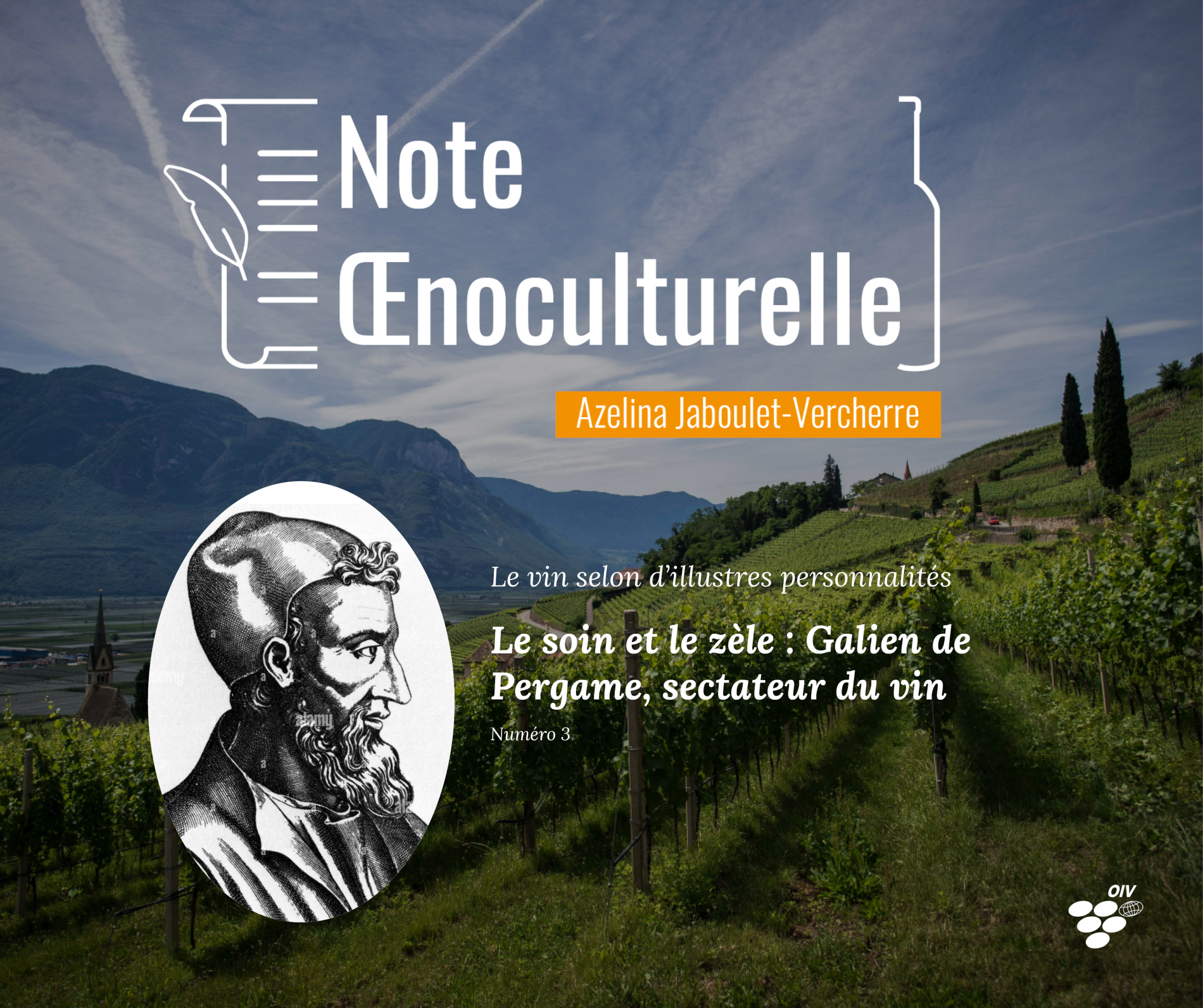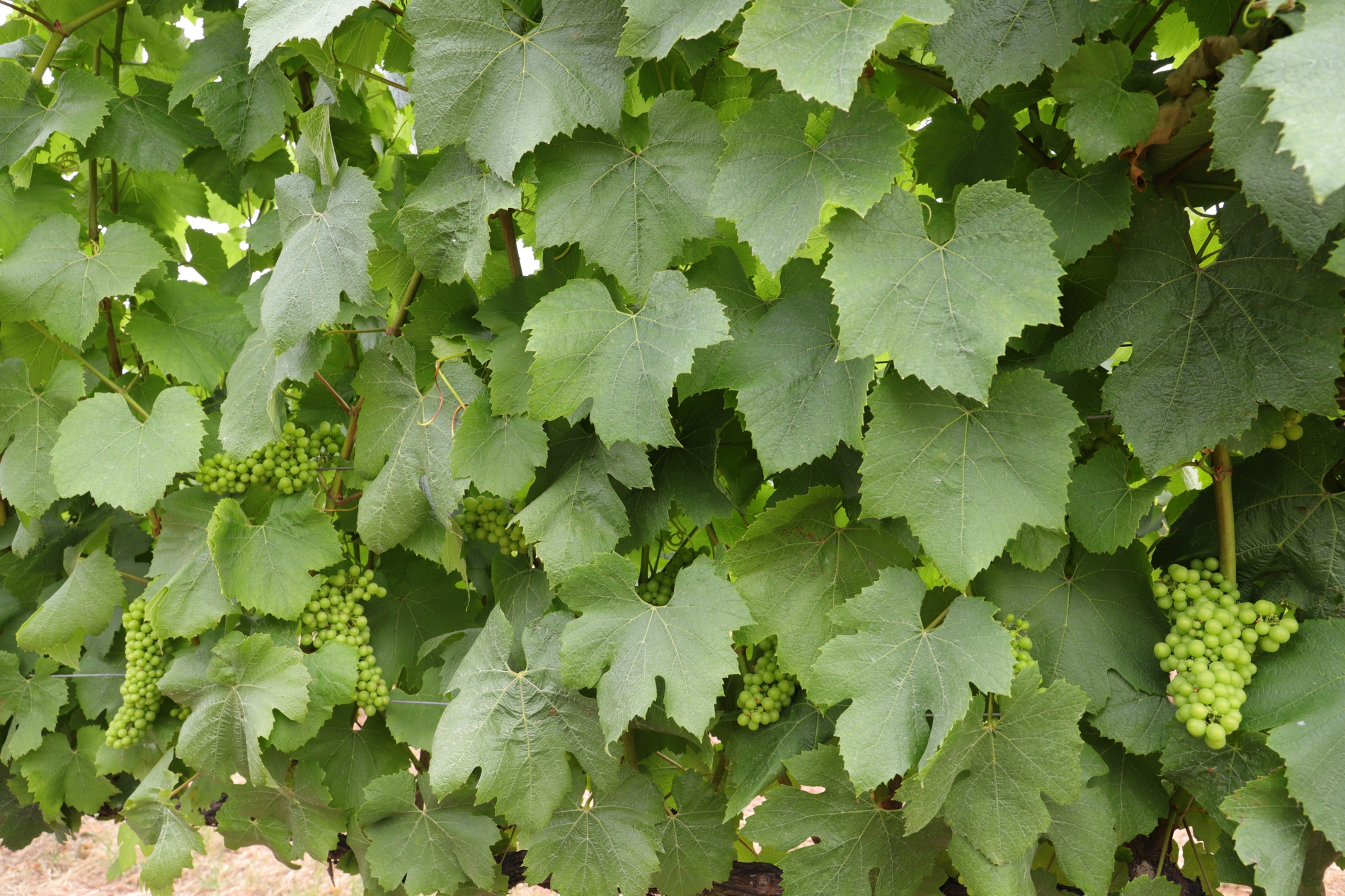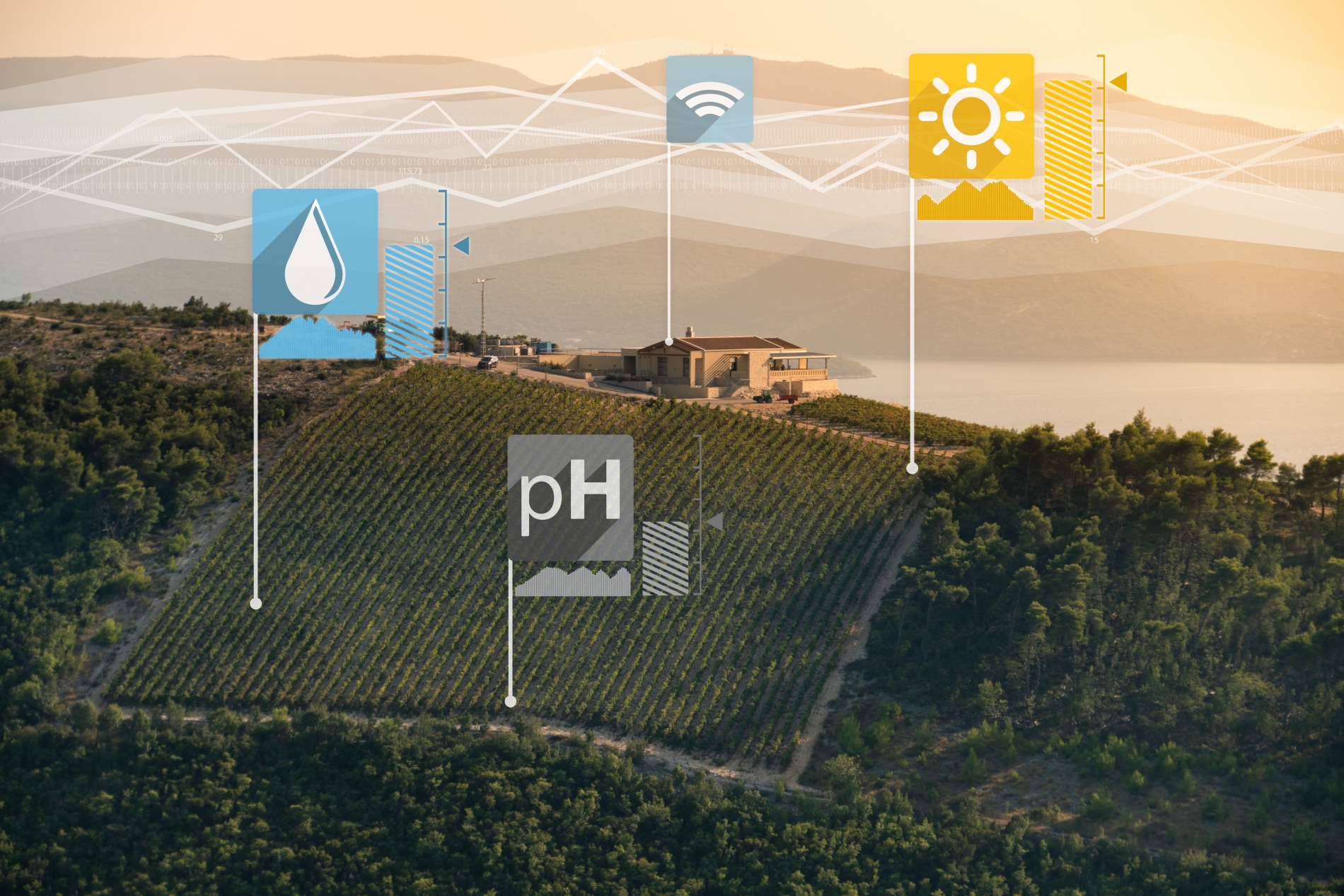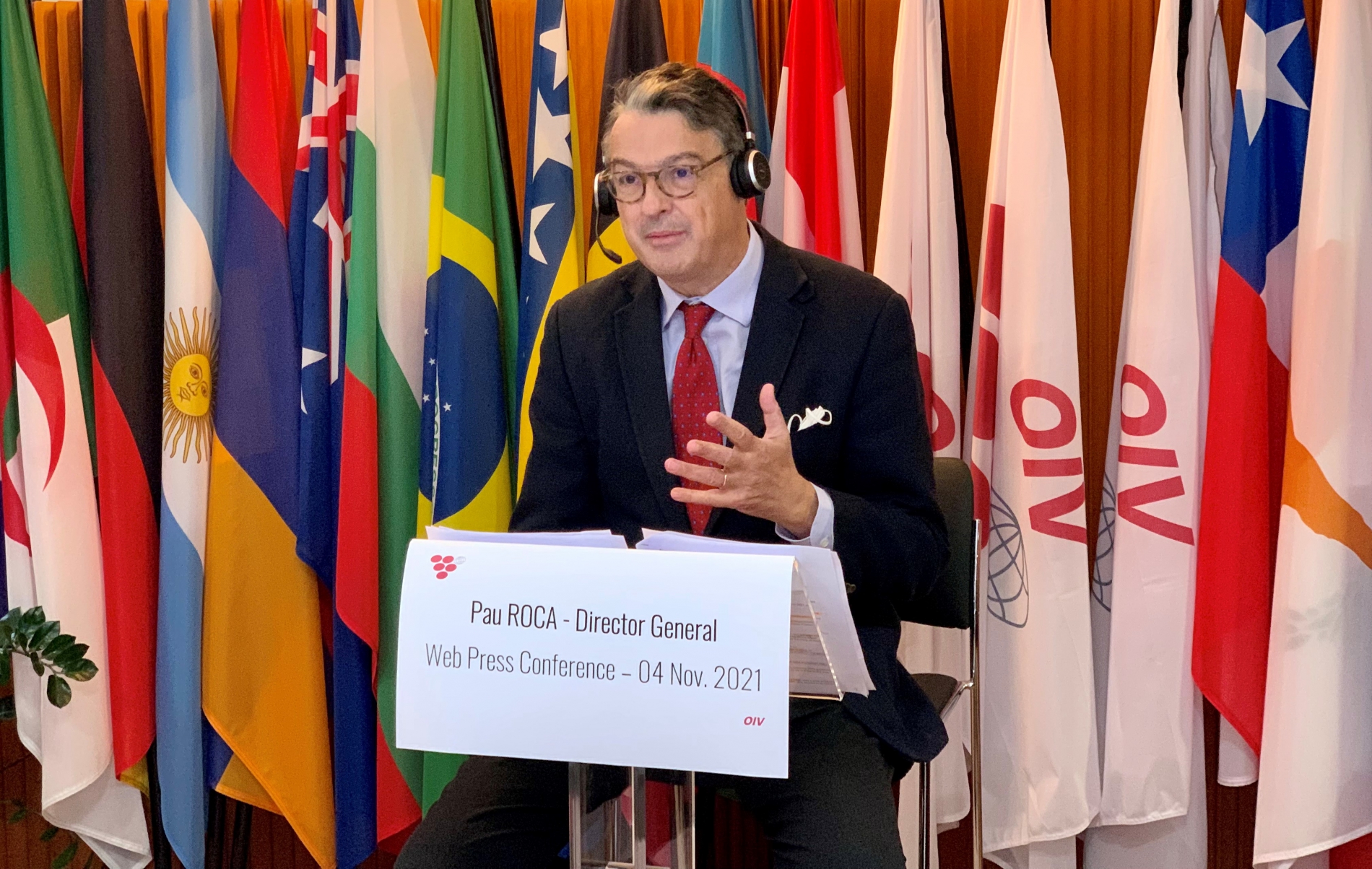02 фев 2022
In December 2021, the BECA- the European Parliament’s Special Committee on Beating Cancer -approved its report which stated that there is no safe level of alcohol consumption. Now, the European Parliament will vote on 14th of February the adoption of the report that could recommend to include “health warning labels”. Therefore, wine could be considered as a potential carcinogenic beverage along with other alcohol beverages and as we see today with tobacco. However, the OIV has always encouraged responsible drinking and has published many works on the research into the effects of moderate wine consumption on health. Wine could be considered as a potential carcinogenic beverage along with other alcohol beverages and as we see today with tobacco. Therefore, and given the common objectives with the World Health Organisation in promoting a healthy way of life, cooperation must be crucial between both Organisations and we need to foster a full transparent space for participation.
Read Russian Version here
01 фев 2022
Registration form: www.oiv.int or jurydesprix@oiv.int● Paper printed books with PDF in the 12 categories.● Interactive digital tool (E-learning, Website…) in the categories: Viticulture and Sustainable Vitiviniculture, Oenology, Vitivinicultural Economy and Law, History, Literature and Fine Arts, Wine and Health.Advertising and commercial documents are not accepted.For more information: [FR] [EN]Further information: jurydesprix@oiv.int
31 янв 2022
Plus de 180 cartons contenant près de 6000 ouvrages et 40 m3 d’archives de l’OIV sont arrivés à la Maison des Sciences de l’Homme à Dijon aux fins de traitement numérique dans le cadre du programme de transformation digitale adopté par les Etats membres de l’OIV.Le directeur générale s'est réjoui de renouveler avec l’Université de Bourgogne et le Centre National de la Recherche Scientifique la collaboration qui a déjà permis en 2016 la numérisation complète du Bulletin de l'OIV (1927-2014). Les 1000 numéros numérisés et indexés sont accessibles sur la plateforme numérique de la MSH.Cette nouvelle étape, planifiée sur trois ans, devrait permettre le dépouillement, le classement et la cotation du fonds d’archives et du fonds d’ouvrages de l’OIV, constitutifs d’un patrimoine scientifique et historique exceptionnel.Après un inventaire descriptif et bibliographique, la numérisation des archives et d’ouvrages anciens permettra de mettre à la dispositions des experts, des délégués, des chercheurs et aussi du grand public, un fonds unique spécialisé dans le domaine de la vigne et du vin, témoin du premier centenaire de l’OIV.Le Président de l’Université a souligné l’importance de cet accord qui renforce la reconnaissance du pôle spécialisé de traitement documentaire de la plateforme « Humanités Numériques » de la MSH. Cette nouvelle étape de coopération permettra de valoriser la création d’un centre mondial de documentation vitivinicole. Vincent Thomas s’est également félicité que ce projet associe la Chaire UNESCO « Culture et Tradition du Vin », renforçant ainsi le positionnement international de ce partenariat.A l’occasion de cette visite, le Directeur général de l’OIV a également poursuivi avec le maire de Dijon, François Rebsamen, les échanges sur le processus de mise à disposition de l’Hôtel Bouchu d’Esterno dans lequel l’OIV installera son siège en 2024 pour le centenaire de l’Organisation. Pau Roca a également visité les locaux de la Cité Internationale de la Gastronomie et du Vin qui accueilleront le secrétariat de l’OIV à partir du mois d’aout 2022.
18 янв 2022
On 2 December 2021, OIV Director General Mr Pau Roca visited the Montpellier region for a day dedicated to the theme of “Sustainable viticulture: the role of agroecology and soil management”. This visit was also about deepening relations between the OIV and the “4 per 1000” initiative, thanks to the attendance of its Executive Secretary, Mr Paul Luu. It was held at the Notre Dame du Quatourze estate owned by Mr Georges Ortola, who presented the agroecological practices that are implemented on his estates: inter-row cover cropping, tillage reduction, return of pruned canes to the soil, grazing, etc. The importance of good pruning practice has also been emphasised by Mr Alain Canet, President of France’s Centre National d’Agroécologie, who pointed out that pruning problems were recurrent in vineyards and had negative impacts on vine health. Florence Jard, from the “Pour une Agriculture du Vivant” association which works for the transformation of the agri-food sector to agroecology, gave a presentation of the Regeneration Index applied to vines – this makes it possible to evaluate holdings’ agroecological level.“There was a shared vision of the importance of disseminating these practices to the sector as a whole.”This day allowed for a rich exchange of ideas between stakeholders practising agroecology on a daily basis and institutional stakeholders. There was a shared vision of the importance of disseminating these practices to the sector as a whole. The OIV, via the “Viticulture” Unit led by Mr Alejandro Fuentes Espinoza, who is also a member of the “4 per 1000” initiative's Scientific and Technical Committee, takes this topic very seriously. On 19 January 2022, another meeting was held between the executive bodies of the OIV and the “4 per 1000” initiative to contemplate the details of this collaboration. On this occasion, Ms Anne Reutin, a researcher at the OIV, presented her work on carbon issues in the vitivinicultural sector and the importance of taking these issues in hand in political, technical and scientific terms. Both institutions envisage working together and developing key areas of work as well as discussions to achieve progress at the international level on this major topic of soil health and safety.
Read Russian version here
09 янв 2022
Считается, что труды Клавдия Галена (129-200/210 гг.) составляют почтиодну восьмую дошедшей до нас греческой литературы, написанной со временГомера до конца II века нашей эры. Однако многие из его трактатов утрачены, аоб остальных нам известно только по переводам на латинский, арабский и режена иврит. Глубокое знание классической литературы и философии, а, значит, ивладение навыками софистики, стали залогом успеха Галена в областинатурфилософии. Всю свою жизнь он стремился поднять медицинскую науку науровень искусства, совмещая с врачебной практикой, которую онсовершенствовал в Смирне, Коринфе, Александрии и Пергаме, где стал врачомпри школе гладиаторов1. Поиск благородного союза между теорией и практикойнаходит идеальное выражение, когда в своих текстах он неоднократнозатрагивает вопросы вина. Как известный продолжатель традиции Гиппократа, он составляет подробные комментарии к сочинениям его Корпуса, в частности к сочинению«О диете при острых болезнях» (Régime des maladies aiguës)2. В своей интерпретации Гален обогащает и расширяет строгую классификацию своего предшественника и приводит примеры конкретныхвиндля иллюстрации основных критериев вина по Гиппократу: цвета, вкуса, структуры, аромата и свойств. В одном из трактатов о противоядиях Гален выделяет различные типы вин: густые, крепкие, слабые (или водянистые), горькие, кислые, что позволяет ему затронуть вопрос о потенциале к выдержке для каждого из них: средний для «белых вин с легкой структурой», значительный для «крепких, горьких и густых белых вин». На фоне остальных он явно выделяет два вина: соррентинское и фалернское. «Стоит ли говорить о соррентинском вине? Всем известно, что оно остается молодым около двадцати лет. Все это время оно не теряет своей силы, долго сохраняет приятный вкус, не склонно к появлению горечи; оно обладает теми же характеристиками, что и фалернское вино». Гален, «О противоядиях» I. 3 (Des antidotes I. 3)3 Во многих трудах Гален признает важность терруара и связывает его с потенциалом вин к выдержке. Он не первый врач, который восхваляет целебные свойства вина, но уникальность его подхода заключается в той тщательности, с которой он описывает характерные особенности разнообразных вин. Такое неутомимое усердие делает его одним из первых просвещенных энофилов в истории мысли4. Когда речь идет о вине, Гален, как и многие из нас, не чужд вкусовым пристрастиям, которые он преодолевает в стремлении утолить любопытство. Помимо вин Малой Азии он признает ценность винодельческой продукции Италии, неоднократно признаваясь в особой любви к превосходному фалернскому вину. Гален описывает его как вино с необыкновенным букетом, которое способно поразить беспристрастного знатока и стать упоительным субъективным открытием для восхищенного новичка. И даже если, как он отмечает, для описания чувственного опыта недостает слов, вино позволит объединить эмоции и рассудок. И доказательством тому может быть узнавание вина, которое вы пробуете в первый раз, но уже слышали о нем. И все, что вы о нем знаете, может даже усилить ощущения при дегустации5. Среди высоко ценимых фалернских вин Гален выделяет два основных сорта по степени их сладости, отмечая особо ярко выраженную сладость фаустинского вина6. Его сладость балансирует на грани терпкости и остроты, двумя другими основными вкусами, в соответствии с которыми Гален классифицирует вино. Между тем, вкусовые ощущения раскрывают консистенцию вина и его свойства. Таким образом, более нежная плотность фаустинского вина делает его идеальным ингредиентом для изготовления противоядий, в частности, териака – самого совершенного из противоядий7. In a treatise on antidotes, Galen identified different types of wine – firm, strong, weak (or watery), bitter, sharp – and rated their storage potential, which was mediocre for “white wines of little substance”, and significant for “strong, sharp and thick white wines”. Sorrento and Falernian wines stood out from the rest. Indeed, he saw them as essentially interchangeable3. Indeed, the reason for the two wines’ similarities had to do with terroir, which Galen acknowledged as important, and linked to the ageing potential of wines (beyond twenty years). Although he was not the first physician to praise the therapeutic uses of wine, he was unique in the meticulousness with which he described the specific qualities of a large number of wines. Such zeal undoubtedly makes him one of the first enlightened oenophiles in the history of thought4. «Книга о винах» (Le livre des vins) Галена заслуживает особого упоминания. Этот труд в лучших традициях Гиппократа отличается своей краткостью и впоследствии часто используется как vade mecum8 (справочное пособие) по медицинской литературе о вине. Сначала Гален рассматривает различные виды вина с точки зрения структуры, начиная с самого легкого вина, котороеназывают «водянистым» из-за сходства с водой по цвету и консистенции, а также, как он уточняет позже, из-за слабой терпкости. Это вино обладает слабовыраженным вкусом, и Гален советует не добавлять в него много воды, чтобы не нарушить его и без того легкуюструктуру9. Своим мочегонным действием оно обязано скорости процесса диффузии в организме. Даже если его теплота умеренна в сравнении с другими винами, его природа теплее природы воды. Это легкое вино укрепляет легкие и разжижает основные жидкости организма (не только кровь), его умеренная теплота не вредит при лихорадке, в отличие от других вин и нечистой воды; наконец, оно не повредит молодым людям, а также сухому и горячему темпераменту холериков. Оно помогает при головной боли и нежелательном вздутии живота10. Затем Гален переходит к описанию отличительных свойств сладких и густых вин. Такое разграничение позволяет продолжить поиск полной совместимости природы человека и структуры вина, что впоследствии и будут делать его преемники. Ученые того времени в большинстве своем искали гармонию между вином и пьющим, а не между едой и вином, как это с энтузиазмом делают наши современники. Гален опирался на образную близость вина и человеческого тела для объяснения физиологических механизмов, например, проводя аналогию между кроветворением и производством вина11. Для Галена вкус и аромат вина неотделимы от его структуры, которая лежит в основе его уникальности и сложности. Знания о вине и поиск множества различных способов его описания не только не умаляют впечатления от дегустации, но и открывают ее новые грани. Дегустация – это нечто большее, чем сугубо физическое явление, она наполняет благодатью сердце, неизбежно подчиненное темпераментам тела12. Таким образом, говоря о вине, Гален раскрывается как служитель медицинского искусства и как представитель этической мысли. Гален использовал такое сравнение, чтобы объяснить процесс формирования основных жидкостей организма и появление едкости черной желчи, или уксуса, который оказывает разъедающее действие на желудок («О естественных способностях», II.9 (Des facultés naturelles, II.9)). Образно говоря, качество вина зависит от организма. Надлежащему функционированию организма, нормальному осуществлению процесса кроветворения противопоставляются возможные изменения основных жидкостей в результате их разложения. -------------------------------------------- 1 Об определении «медицинского искусства» по Галену см. вступление Вероник Будон к ее изданию Galien, vol. 2, Paris, Les Belles Lettres, 2000, p. 168-170; 224-252. 2 См. Wesley D. Smith, The Hippocratic Tradition, Ithaca, N.Y., Cornell University Press, 1979, особенно главу 2, «Galen’s Hippocratism», p. 61-176. 3 Пер. выполнен по пер. Жан-Марка Мандозио (оригинал – пер. Кюна XIV, 14-19). 4 См. вступление Вероник Будон к ее изданию Galien, vol. 2, Paris, Les Belles Lettres, 2000, p. 168- 170 ; 224-252.5 Galien, De la connaissance du pouls 11, по пер. Кюна VIII, 774-5. 6 Galien, De la méthode thérapeutique XII 4, по пер. Кюна X, 832. 7 Galien, Des antidotes I 3, по пер. Кюна XIV, 20. 8 Данный текст содержится во многих средневековых рукописях, в том числе в парижских рукописях BnF Lat. 6865, fol. 53vb-54va; N.A.L. 343, fol. 69r-70r. (труд De alimentis содержится в fol. 74-107), его содержание не претерпело существенных изменений в использованном здесь издании (Венеция, 1490, в Galen, Opera, vol. 1, fol. 135vb-136rb). 9 Galien, Le livre des vins, Венеция, 1490, vol. 1, fol. 136rb. 10 Galien, Des facultés naturelles III.15. 11 Galien, De l’utilité des parties du corps humain 4, пер. Шарля Дарамбера в Œuvres médicales choisies, vol. 1, p. 281-282. 12 Galien, Que les facultés de l’âme suivent les tempéraments du corps, пер. Барра, Биршлер, Моран, 2004, § 1; 3
07 дек 2021
One of the new measures for the vitivinicultural sector is the official laying down of conditions for the dealcoholisation and partial dealcoholisation of wines. In defining this new framework, the EU has used the work of the OIV as a basis, in particular Resolutions OIV-ECO 523-2016, OIV-ECO 433-2012 and OIV-ECO 432-2012.The designation of the product category (a compulsory particular) is now to be accompanied by the terms “de-alcoholised” or “partially de-alcoholised” for the following products: “wine”, “sparkling wine” and “aerated semi-sparkling wine”. Total dealcoholisation is limited to products that do not benefit from a designation of origin or a geographical indication. Partial dealcoholisation is permitted for all wines, sparkling wines and aerated semi-sparkling wines.The alcoholic strength by volume threshold between “de-alcoholised” and “partially de-alcoholised” is the same as that accepted by the OIV in 2012, namely 0.5%.In line with OIV recommendations (OIV-OENO 394A-2012), the permitted dealcoholisation processes to partially reduce or almost totally eliminate the ethanol content in grapevine products are partial vacuum evaporation, membrane techniques and/or distillation.The wine sector continues to innovate and is sensitive to the changing concerns of consumers, while maintaining respect for the integrity and traditions of the product. OIV Member Countries are currently working on a framework defining specific oenological practices that would be applicable to these new products.
29 ноя 2021
The International Organisation of Vine and Wine (OIV) in cooperation with the French National Institute of Wine (IFV), is organising an international symposium on following topic: The Vitivinicultural sector: which tools to face current challenges? The symposium will be held in the frame of the International Horticultural Congress (IHC) is the most important scientific event organised every four years since 1959 in the fields related to horticulture (fruit, vegetables, aromatic and medicinal plants, seeds and roots, ornamental plants, landscaping, vineyard.) under the auspices of ISHS (International Society for Horticultural Science).ISHS is a truly global network comprising over 6,000 members. Its aim is to promote and foster research and education in horticultural science and to facilitate cooperation and knowledge transfer on a global scale through events and publications.This symposium will address some of the major challenges facing viticulture for grape, raisins, juices and wine production worldwide: grapevine decline, soil preservation and management, and grapevine genetic diversity. A specific session will address the current challenges in the production of table grapes, dried grapes and non-fermented beverages.The following topics will be developed during the symposium :• Facing grapevine decline- Abiotic and biotic stress factors: climate change, harmful organisms, etc.- Vineyard management: viticulture practices, training systems, landscape management etc.- Economic and societal impact of grapevine decline• Sustainable management and conservation of vineyard soils- Soil conservation- Systemic and integrated management to improve soil quality: functional biodiversity, soil microbiota, etc.- The contribution of soil in climate change mitigation: carbon sequestration, low emission soil management practices, etc.- Impacts of climate change on soil composition and activity.• Preservation and improvement of grapevine genetic diversity- Resistant and ancient varieties to meet production and consumption challenges in a context of sustainability of the sector.- Ampelographic and molecular techniques for variety identification and selection.• Current challenges of viticulture in the production sector of table grapes, dried grapes and unfermented beverages- Technical and economic challenges in table grape and dried grape production- Food and health related challenges for producers and consumers of table grapes, dried grapes, and non-fermented beverages- Grapevine breeding programs: what are the specificities for the table grapes and dried grape sector?Submit your abstract here before Decembre 20th. Key Speakers : Cornelia Rumpel, CNRS, France and Gregorio Muñoz Organero, IMIDRA, Spain Where ?Angers, FranceWhen?
24 ноя 2021
The meeting brought together experts from the academia, governments, international organisations and the private sector from different countries: Dr. Adriaan Oelofse who is the Research, Development & Innovation Manager at WINETECH who spoke about the concept of smart vineyards, the professor expert in Artificial intelligence Dr. Bernard Chen from the University of Arkansas, professor at the Comillas Pontifical University and Blockchain expert Dr. Javier Ibañez, Mr. Fabián Torres who is a Principal Consultant at SICPA and also an expert in Digital Transformation and Guidance, and finally Mr. Olivier Oram, expert in Blockchain and founder of Chainvine, a business that helps reducing the cost of trust in moving wine all over and around the world".The event is very special for the OIV since it marks a milestone in the five-year strategic plan.“From its foundation in 1924 the approach of the OIV has always been one of taking advantage of the most recent evolution of all scientific knowledge and using the most innovating tools offered by technology to mankind”, said the OIV director General Pau Roca in his opening speech of the symposium. “It has been extremely interesting to also see how new technologies can help address some of the key issues to the sector such as sustainability, climate change, traceability, fraud prevention, or resilience”, said Mr Roca to conclude the meeting. As an international organization of scientific and technical nature, the OIV aims to inspire and provide guidance to all stakeholders, and ensure that such a transition is smooth, inclusive and benefits the whole sector with an equal measure, whether it is the industry, consumers, or governments.PPT by Giorgio Delgrosso, Head of Statistics & Chief DigitalTransformation Officer
Report on digital trends applied to the vine and wine sector
ReplaysReport on digitalisation. Presentation by Giorgio DelgrossoInterview: Professor Adrian Oleofse. Smart Vineyards. WINETECH Round table : Challenges and Opportunities of Digital Transformation in the vine and wine sector
28 окт 2021
Speaking from the OIV’s headquarters in Paris, by web conference, Director General Pau Roca, presented on 4 November, the first estimates of 2021 world wine production.•Low production volume anticipated in the EU, notably in Italy, Spain, and France, which together lost about 22 mhl with respect to 2020 due late spring frost and overall unfavourable climatic conditions.• The only large EU wine producing countries that recorded harvests bigger than 2020 are Germany, Portugal, Romania and Hungary.• First harvest forecasts in the USA indicate production volumes slightly above those of 2020.• Very positive year for Southern Hemisphere vineyards where relatively favourable climatic conditions lead to record high production levels in countries of South America, South Africa and Australia, with New Zealand being the only exception.Replay Press release PPT Presentation[ENG]2021 Wine production first estimates
24 окт 2021
The General Assembly has decided to transfer the headquarters of the OIV with the relocation of the Secretariat from Paris to Dijon. The 48 member states accepted France's proposal to provide the OIV with headquarters, ensuring temporal, legal and financial stability for the Organisation.Read the full press release
